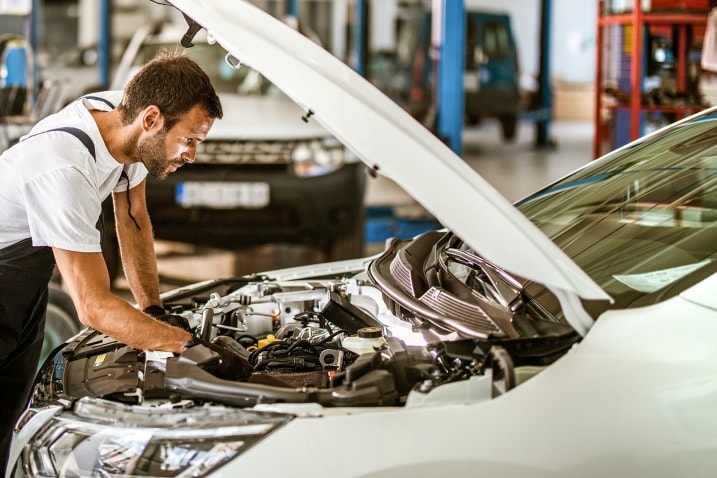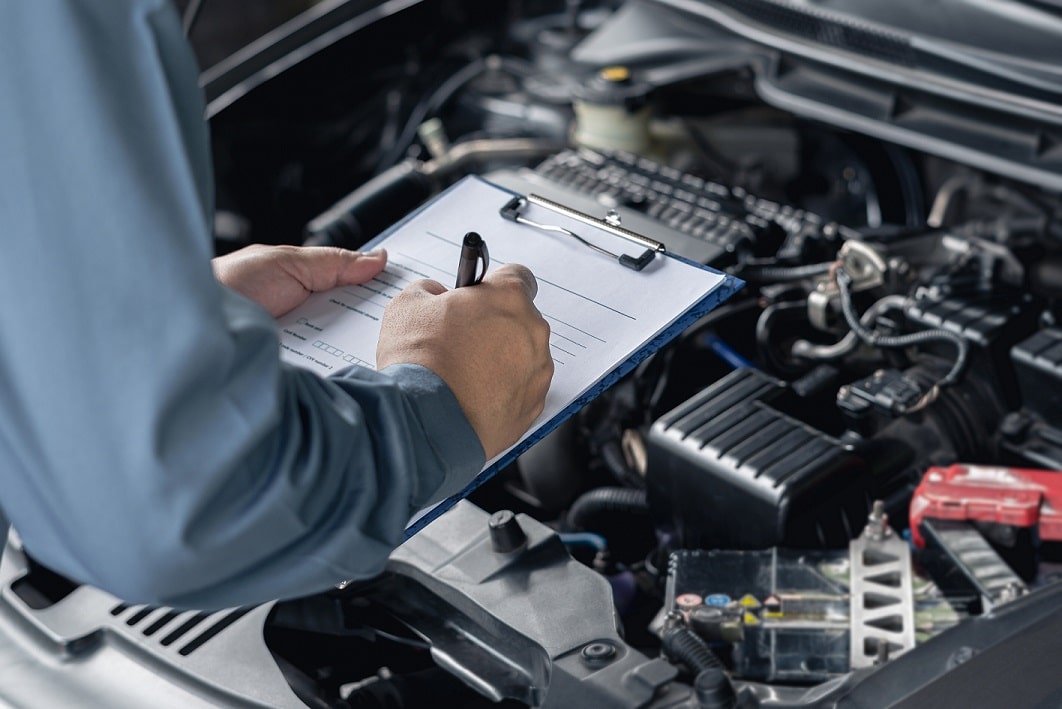All Categories
Featured
When your auto begins to get too hot, it can be a demanding and frightening circumstance. Comprehending exactly how to respond in these moments and taking actions to stop future overheating can aid secure your lorry and avoid costly fixings. If your cars and truck overheats and just how to stop it from taking place once more., below's what to do.
If Your Car Gets too hot,What to Do. Draw Over and Switch Off the Engine The very first point you should do if your car begins to get too hot is to pull over to a secure location, such as a parking area or the shoulder of the roadway. Turn off the engine quickly to prevent further damage. Running an overheated engine can cause irreparable damage to the inner components, including the radiator and cyndrical tube heads.
Permit the Engine to Cool After turning off the engine, provide it time to cool down. Opening up the hood can assist release heat, yet beware as the engine and bordering areas may still be incredibly warm. Wait a minimum of 15-20 mins before trying any kind of further actions.
Inspect the Coolant Degree Once the engine has cooled down, inspect the coolant level. Never ever open up the radiator cap while the engine is warm, as this can cause hot coolant to spray and shed you.
Inspect for Leakages or Broken Pipes While you are evaluating the coolant degree, look for any type of visible leaks or damaged hoses under the hood. Fractured or damaged hose pipes can trigger coolant to leak out, leading to an overheating engine. If you find any issues, you might require to ask for roadside help or a tow to obtain the auto to an auto mechanic.
Call for Help If you can't recognize the source of the overheating or the issue continues after complementing the coolant, it's best to ask for roadside aid. Driving with an overheated engine can create extreme damage to your automobile and leave you stranded.
![]()
How to avoid Your Auto from Overheating. Inspect Coolant Levels Frequently Among the major reasons of overheating is reduced coolant degrees. If needed, make it a habit to examine your coolant levels regularly and cover them off. Refer to your car's guidebook for the recommended coolant combination and maintenance intervals.
Check Your Radiator Your radiator plays a vital duty in maintaining the engine cool. Make certain there are no blockages or debris blocking airflow with the radiator. If your radiator is blocked or harmed, it might not operate correctly, bring about overheating.
Maintain Your Air conditioning System The cooling down system must be flushed and refilled occasionally. With time, coolant can become infected or lose its effectiveness. Adhere to the maker's referrals for purging the system, generally every 30,000 to 50,000 miles.
Monitor the Thermostat and Water Pump The thermostat regulates the temperature of the engine, while the water pump distributes coolant via the engine. If either of these elements falls short, it can create the engine to get too hot. Have your technician check the thermostat and water pump throughout routine maintenance.
Stay Clear Of Overloading the Vehicle Overloading your car, especially on lengthy trips or hot days, can stress the engine and the cooling system. Be conscious of your car's weight limitations and try to prevent lugging hefty loads, particularly when driving in extreme temperatures.
Drive with Treatment Aggressive driving, such as speeding or quick velocity, can boost engine stress and heat manufacturing. Reduce, specifically on warm days or when driving up steep inclines, to minimize the threat of overheating.
![]()
Conclusion. If your auto gets too hot can avoid more damages to your engine and help you take care of the situation securely, understanding what to do. By routinely inspecting your coolant degrees, examining the radiator and hoses, and maintaining the cooling system, you can minimize the threat of getting too hot. With proactive treatment and proper maintenance, your car will remain in excellent condition, guaranteeing you remain risk-free and avoid costly repair work down the road.
If Your Car Gets too hot,What to Do. Draw Over and Switch Off the Engine The very first point you should do if your car begins to get too hot is to pull over to a secure location, such as a parking area or the shoulder of the roadway. Turn off the engine quickly to prevent further damage. Running an overheated engine can cause irreparable damage to the inner components, including the radiator and cyndrical tube heads.
Permit the Engine to Cool After turning off the engine, provide it time to cool down. Opening up the hood can assist release heat, yet beware as the engine and bordering areas may still be incredibly warm. Wait a minimum of 15-20 mins before trying any kind of further actions.
Inspect the Coolant Degree Once the engine has cooled down, inspect the coolant level. Never ever open up the radiator cap while the engine is warm, as this can cause hot coolant to spray and shed you.
Inspect for Leakages or Broken Pipes While you are evaluating the coolant degree, look for any type of visible leaks or damaged hoses under the hood. Fractured or damaged hose pipes can trigger coolant to leak out, leading to an overheating engine. If you find any issues, you might require to ask for roadside help or a tow to obtain the auto to an auto mechanic.
Call for Help If you can't recognize the source of the overheating or the issue continues after complementing the coolant, it's best to ask for roadside aid. Driving with an overheated engine can create extreme damage to your automobile and leave you stranded.

How to avoid Your Auto from Overheating. Inspect Coolant Levels Frequently Among the major reasons of overheating is reduced coolant degrees. If needed, make it a habit to examine your coolant levels regularly and cover them off. Refer to your car's guidebook for the recommended coolant combination and maintenance intervals.
Check Your Radiator Your radiator plays a vital duty in maintaining the engine cool. Make certain there are no blockages or debris blocking airflow with the radiator. If your radiator is blocked or harmed, it might not operate correctly, bring about overheating.
Maintain Your Air conditioning System The cooling down system must be flushed and refilled occasionally. With time, coolant can become infected or lose its effectiveness. Adhere to the maker's referrals for purging the system, generally every 30,000 to 50,000 miles.
Monitor the Thermostat and Water Pump The thermostat regulates the temperature of the engine, while the water pump distributes coolant via the engine. If either of these elements falls short, it can create the engine to get too hot. Have your technician check the thermostat and water pump throughout routine maintenance.
Stay Clear Of Overloading the Vehicle Overloading your car, especially on lengthy trips or hot days, can stress the engine and the cooling system. Be conscious of your car's weight limitations and try to prevent lugging hefty loads, particularly when driving in extreme temperatures.
Drive with Treatment Aggressive driving, such as speeding or quick velocity, can boost engine stress and heat manufacturing. Reduce, specifically on warm days or when driving up steep inclines, to minimize the threat of overheating.

Conclusion. If your auto gets too hot can avoid more damages to your engine and help you take care of the situation securely, understanding what to do. By routinely inspecting your coolant degrees, examining the radiator and hoses, and maintaining the cooling system, you can minimize the threat of getting too hot. With proactive treatment and proper maintenance, your car will remain in excellent condition, guaranteeing you remain risk-free and avoid costly repair work down the road.
Latest Posts
Discover Limited-Time Auto Repair Offers in Chicago at Montclare Auto Repair
Published May 26, 25
1 min read
Check Out Outstanding Auto Repair Care in Chicago – Expert Care for Your Vehicle
Published May 26, 25
1 min read
Recognizing Roofing Guarantees: What Homeowners Ought To Know
Published May 25, 25
1 min read
More
Latest Posts
Discover Limited-Time Auto Repair Offers in Chicago at Montclare Auto Repair
Published May 26, 25
1 min read
Check Out Outstanding Auto Repair Care in Chicago – Expert Care for Your Vehicle
Published May 26, 25
1 min read
Recognizing Roofing Guarantees: What Homeowners Ought To Know
Published May 25, 25
1 min read